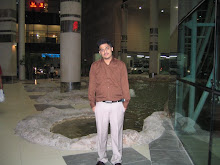The Asian world order
The advent of a new world order is the consequence of tectonic power shifts across the globe. Given its profusion of resources, Asia, spearheaded by China, is staring at a period of unprecedented economic growth. China’s fairly tale has made it the centre of the world’s new centre. Something more striking than how a country has pulled 400 million people out of the menace of poverty is the fact that this is just the start of China using its mind boggling potential. . The fall of the West commensurate with the overwhelming ascent of Asia into the corridors of power, a phenomenon largely inconceivable a few decades ago. Many would contend against this, arguing that it is inconceivable that Chinese will become the language of the future or that we will witness an upsurge in Chinese rock music. While it is difficult to accept that within a lifetime, the Western customs that are so deeply ingrained in our lifestyle will be replaced by Chinese ones, our very refusal to accept this is in itself a reflection of the Western ideological lens that we use to make sense of the world. Martin Jacques endorses the view that China’s economic power will translate into cultural influence, as the economic powerhouse spreads it wings with the passage of time.
It is interesting to note how the framing of the question leads us to unconsciously believe that world domination rests on economic progress. This notion is implicit in the claim of Western loss of hegemony as a direct result of economic stagnation .Power encompasses a wider meaning and cannot only be restricted to economic advancement. The cultural appeal of a country and its soft power are pivotal in gaining the recognition and acceptance paramount to any great power. That said, economic power is a stepping stone for a country to expand its sphere of influence.
The claim that the West has been usurped by the rising Asia raises the broader question of how power is defined. As outlined by Paul Kennedy in the ‘Rise and Fall of the Great Powers,’ a nation’s capability to exercise global hegemony rests directly on its productive capacity. Europe, by virtue of the overwhelming economic lead it gained by being the first to embrace the Industrial Revolution, was able to control and maintain its hegemonic position. Economic power has a strong correlation with military influence as the newly found wealth can be used to bolster the country’s defense. China’s growing economic clout will transmute it into next global hegemonic power. The United States is already feeling the pinch of the war against terror, manifested through the huge amounts of defense spending that the country cannot sustain in the long run. This imperial overstretch is among the many signs emerging that the once seemingly invincible hyper power is now in decline.
In the West, one of the misguided notions of conventional wisdom is that as China modernizes, it will become a Western style country. Nothing could be further from the truth. Martin Jacques points out that there are many paths to modernity, a fact intricately linked with the concept of contested modernity. He asserts that Chinese modernity will be shaped by its own culture and history. There is a strong element of national pride and sense of identity among the Chinese, a feeling compounded by the recent financial meltdown and the subsequent resilience of the Chinese economy. This pride also originates from being a part of what Jacques defines as a ‘civilization state’ with a 5000 year old history.
That the Chinese considered themselves the centre of the world is a reflection of this mindset. It is rather difficult to see how a country with such a rich culture and distinctive past can merge and blend into an international system dominated by countries that represent only a small slice of humanity. This serves to justify why a Chinese world order will be very different from that of the West. Therefore, one can dispel the notion that China will become the cornerstone of the Western international order, for it is the very system that it seeks to replace.
It is tempting to dismiss all talk of the changing balance of power as pure hogwash. The United States is still the most powerful nation in the world capable of destroying the world many times over. The level of development in Asia pales in comparison with that of Europe. That said, the winds of change are blowing and it is not sagacious to condone the torrent of changes taking place. Asia’s economic edge is very much palpable and as the years roll forward, even the most ardent supporter of the West will have to concede to the increasing dominance of Asia. If history is to serve as a guide, Britain and USA were able to build their cultural influence and ideological appeal after they had industrialized. There is no reason to believe that Asia will be any different. Beyond doubt, this century belongs to Asia and although we are still at an early stage of the continent’s rise, any astute eye can discern with alacrity that the ‘Age of the West’ is coming to a rapid conclusion.


0 Comments:
Post a Comment
Subscribe to Post Comments [Atom]
<< Home